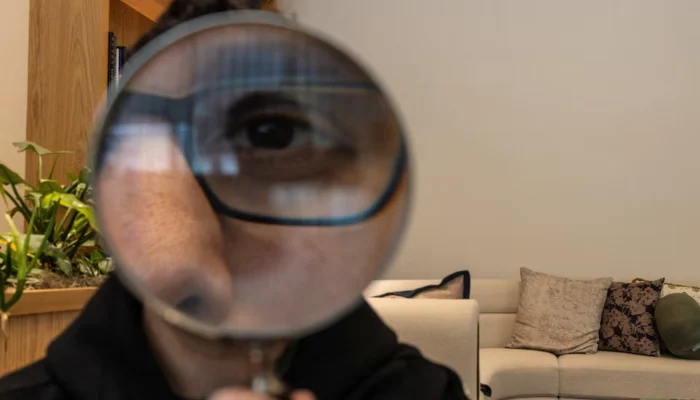The fierce competition to dominate artificial intelligence within Silicon Valley has shifted its battleground to a new arena: the recruitment of superstar researchers. While the relentless pursuit of top talent and ensuring their contentment has always been a characteristic of the tech industry, since the launch of ChatGPT in late 2022, the intensity of recruiting has surged to levels comparable to professional athletics, according to a dozen individuals involved in AI researcher recruitment who spoke to Reuters.
“The AI labs approach hiring like a game of chess,” remarked Ariel Herbert-Voss, CEO of cybersecurity startup RunSybil and a former OpenAI researcher who entered the talent fray after establishing his own company. “They want to move as fast as possible, so they are willing to pay a lot for candidates with specialized and complementary expertise, much like the game pieces. They are like, do I have enough rooks? Enough knights?”
Companies such as OpenAI and Google, eager to gain or maintain a leading edge in the race to develop superior AI models, are vigorously courting these so-called “ICs” – individual contributors whose work possesses the potential to either significantly enhance or undermine a company’s success.
Noam Brown, one of the researchers credited with OpenAI’s recent AI advancements in complex mathematical and scientific reasoning, recounted that during his job exploration in 2023, he found himself being pursued by the tech elite: this included lunch with Google co-founder Sergey Brin, poker games at Sam Altman’s residence, and a private jet visit orchestrated by an eager investor. Elon Musk will also personally call promising candidates for xAI, his AI company, according to two individuals who have spoken with him. xAI did not respond to a request for comment.
Ultimately, Brown explained, he chose OpenAI because the company demonstrated a willingness to commit resources – both human capital and computing power – to the projects he was passionate about. He clarified that “It was actually financially not the best option that I had,” emphasizing that for many researchers, compensation is not the primary motivator. Nevertheless, this has not deterred companies from offering star researchers millions of dollars in bonuses and comprehensive pay packages, as reported by seven sources familiar with the matter.
Two sources informed Reuters that a few top OpenAI researchers who expressed interest in joining former chief scientist Ilya Sutskever’s new company, SSI, were offered retention bonuses of $2 million, in addition to equity increases of $20 million or more, if they chose to remain at OpenAI. Some were even required to stay for only a year to receive the entire bonus. SSI and OpenAI declined to comment.
Furthermore, two sources told Reuters that other OpenAI researchers who received offers from Eleven Labs were provided bonuses of at least $1 million to stay with OpenAI. Top OpenAI researchers frequently command compensation packages exceeding $10 million annually, according to sources.
Google DeepMind has reportedly offered its top researchers annual compensation packages of $20 million, granted off-cycle equity specifically to AI researchers, and has also shortened the vesting period on some stock packages to three years, instead of the standard four years, sources indicated. Google declined to comment.
In contrast, top engineers at large tech companies receive an average yearly compensation of $281,000 in salary and $261,000 in equity, according to Comprehensive.io, a firm that monitors tech industry compensation data.
The “10,000x” Talent Pool
While talent has always been crucial in Silicon Valley, the distinguishing factor of the current AI boom is the extremely limited number of individuals within this elite group. Depending on the source, this number could range from merely a few dozen to approximately one thousand, eight sources told Reuters. This scarcity is based on the conviction that this very small contingent of “ICs” has made disproportionately significant contributions to the development of large language models – the foundational technology underpinning today’s AI boom – and consequently possesses the power to either ensure or derail the success of an AI model.
OpenAI CEO Sam Altman alluded to this phenomenon in late 2023 when he tweeted, “Sure 10x engineers are cool but damn those 10,000x engineer/researchers…,” referencing a long-held maxim that the best software engineers were considered 10 times as effective as the average (10x). However, in the current AI industry, the most exceptional researchers are perceived to be 10,000 times (10,000x) more impactful than their average counterparts.
The departure of OpenAI’s chief technology officer, Mira Murati, in September, who subsequently founded a competing AI startup, has intensified the AI talent war. Murati, known at OpenAI for her formidable management and execution skills, recruited 20 OpenAI employees before publicly announcing her company in February. She has since attracted even more researchers from OpenAI and other laboratories, and her team now comprises around 60 individuals, two sources informed Reuters. Although her company currently has no product on the market, Murati is in the process of finalizing a record-breaking seed funding round, largely on the strength of her assembled team. A representative for Murati declined to comment.
The scarcity of talent has compelled companies to adopt innovative hiring strategies. Zeki Data, a data firm specializing in identifying top AI talent, reported employing data analysis techniques from the sports industry, popularized by the movie “Moneyball,” to pinpoint promising yet undiscovered talent. For example, Zeki Data found that Anthropic has been recruiting researchers with backgrounds in theoretical physics, while other AI companies have hired individuals with expertise in quantum computing. Anthropic did not respond to a request for comment.
Sébastien Bubeck, who left his role as vice president of GenAI research at Microsoft last year to join OpenAI, commented, “On my team, I have extraordinarily talented mathematicians who wouldn’t have come to this field if it weren’t for the fast progress that we’re seeing now.” He added, “We’re seeing an influx of talent from all fields going into AI now. And some of these people are very, very clever, and they make a difference.”



